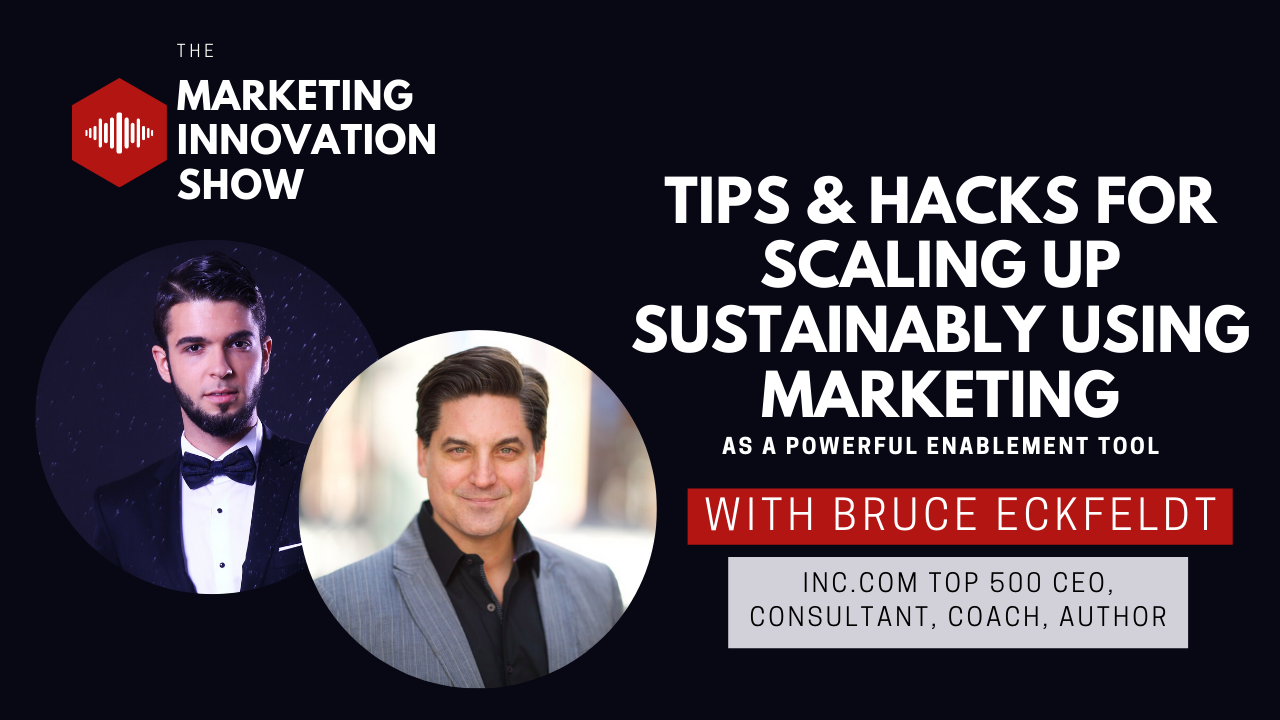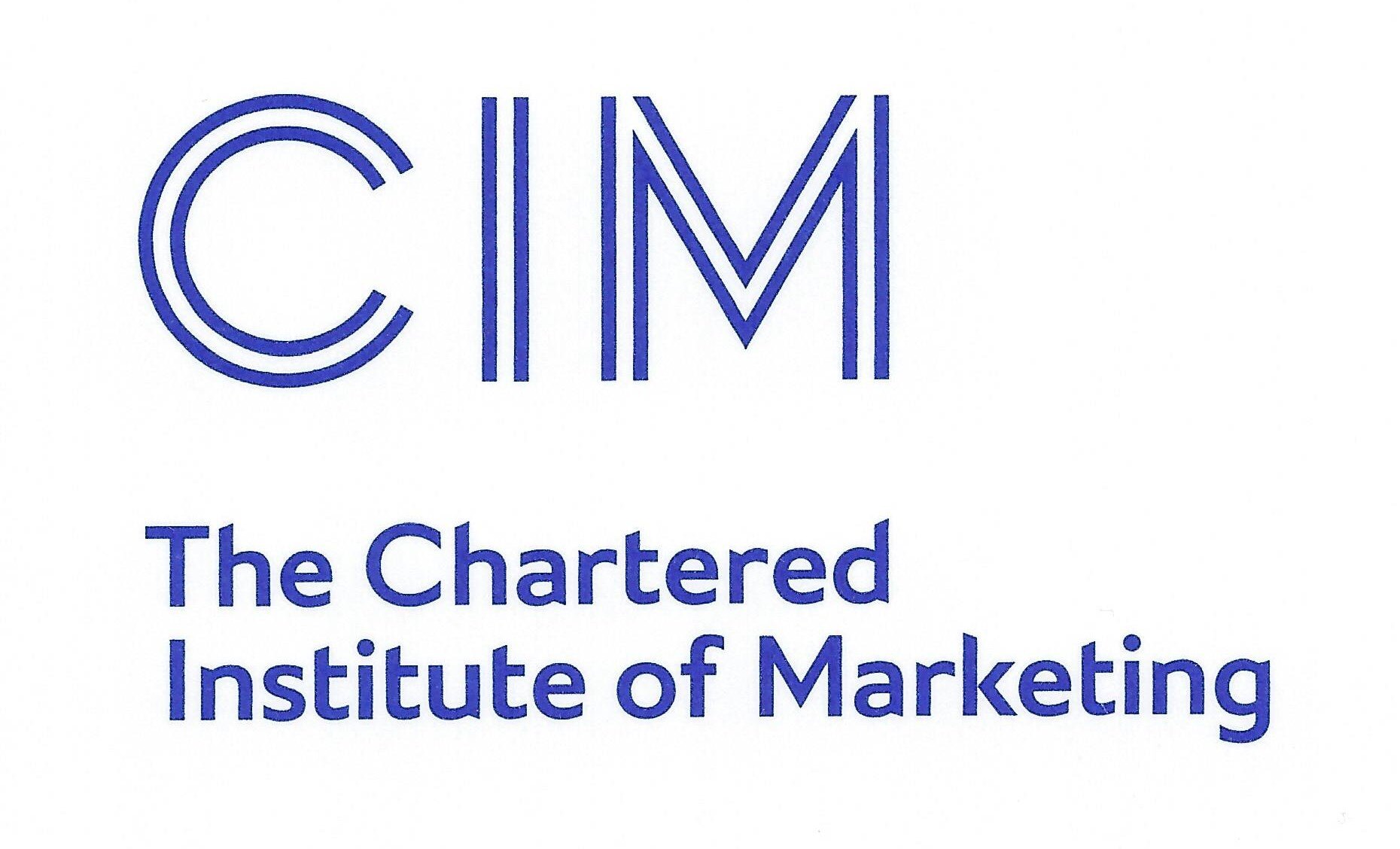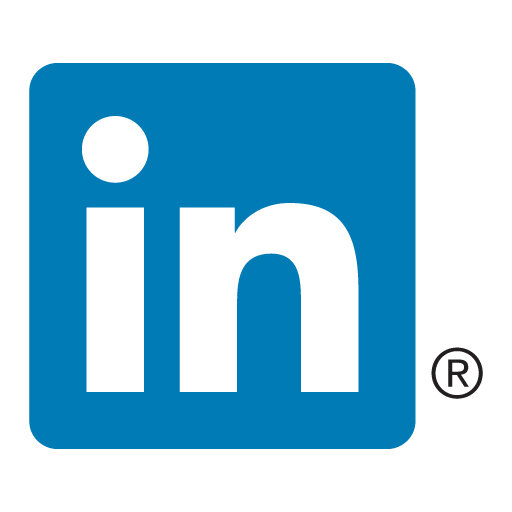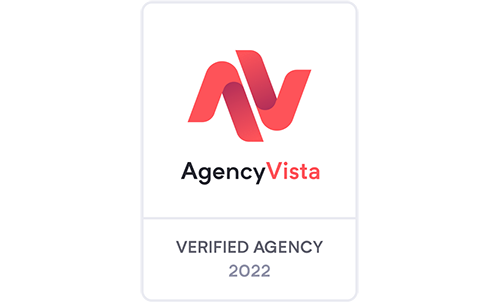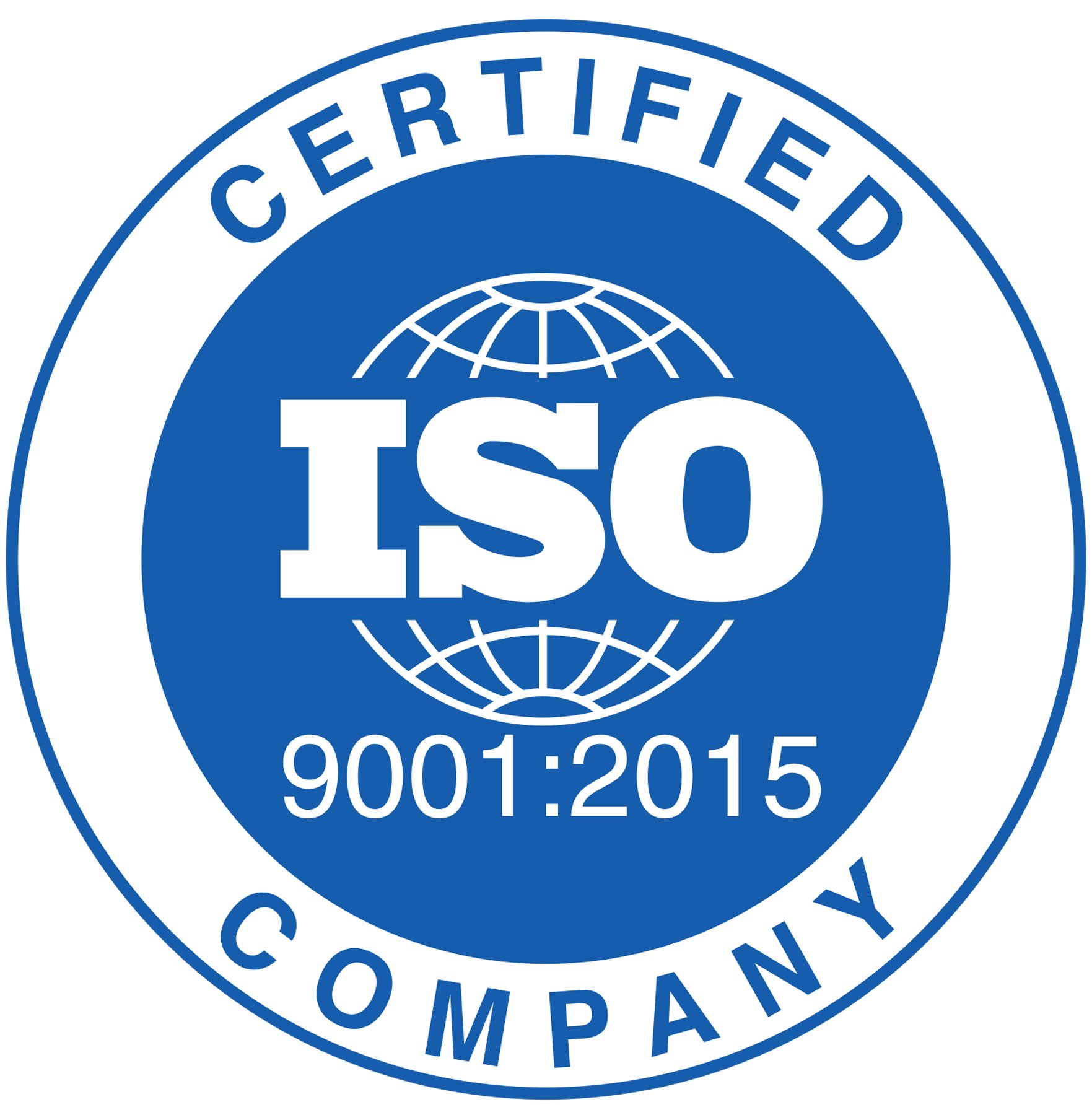HELLO EVERYONE! WELCOME TO ANOTHER EPISODE OF THE MARKETING INNOVATION PODCAST SHOW!
Running a service business? Keen to find the tips & hacks for scaling up sustainably and using Marketing as a powerful enablement tool? 🚀 On today's episode, Bruce Eckfeldt and our host, Andrei dive deep into the subject, discussing Lead generation, strategies for reducing costs per sale and using resources effectively for amplified results - as well as how businesses should rethink their positioning and targeting in the post-COVID-19 world.🏆
Bruce is an Inc.com Top 500 CEO, consultant, coach, author, and speaker on organisational development and performance management in the US. He is currently focusing on helping high-growth companies scale more quickly with less drama. He is an expert in business and operational growth strategy, talent planning, performance coaching, and using Lean/Agile to achieve operational excellence. Bruce has been a member of the Entrepreneurs’ Organisation since 2007 and has served in many chapter and regional leadership positions including Learning, Forum, and Accelerator. Bruce has served as the US East Regional Forum Expert and the US East Regional Accelerator Expert. He also hosts two successful podcasts: Scaling Up Services provides insights and strategies for how to successfully scale service-based businesses and Thinking Outside The Bud explores innovation in the business of cannabis.
If you want to listen to this episode instead of reading about it, choose your favourite platform:
You can also watch the episode on YouTube:
LET’S GET STARTED!
Andrei: Hello, everybody! This is Andrei and you are on The Marketing Innovation Show. On today's episode, we have Bruce Eckfeldt from the US, who is the CEO of the US based firm Eckfeldt and Associates, his upscale business coach and an Inc.com author and a CEO. Hy, Bruce! How's life? How's everything going?
Bruce: Just fine. Thank you so much for having me on. I appreciate it.
Andrei: Awesome, awesome. Really looking forward to our episode together. This is going to be a very insightful, interesting talk. So guys tuning in, today, we will discuss marketing in the context of scaling up businesses. And we will focus more on the service businesses, as well, because this is where Bruce has a wealth of knowledge, he also runs a podcast on this niche, which will link in the description. And yes, very exciting times. So Bruce, tuning in from the US early morning for you, right?
Bruce: Yeah, well, it's pretty reasonable. I've done earlier, but it's always difficult coordinating international calls and meetings.
Andrei: Well, this is the world we live in. So...
Bruce: Yeah, we are adapting to it.
Andrei: So let's see, let's get the ball rolling! Tell us a bit more about you, about where you started, how you developed your career and some of the interesting projects that you maybe are working on at the moment.
Bruce: Yeah, absolutely. While I started life as an architect professionally, did a couple degrees at McGill University in Montreal, ended up getting recruited into the technology space after a couple years in the world. I was doing a lot of computer modeling and animation and it was just a kind of a natural transition for me to focus on kind of digital technology and product development. So I got very involved in product strategy, digital strategy, I did stuff for the Museum of Modern Art here in New York, Web MD, worked for big companies, such as Motorola, helping them to figure out how to leverage digital technologies in their business early on the kind of internet days, and then started a tech company back in 2000 to Lean/Agile software development. So I got more steeped in the actual code, software process of things. Sold that a couple of years ago and have transitioned into a Strategic Coach, so I work with CEOs and their leadership teams on growth strategy and I work on a range of industries, but services is a big one for me. As you mentioned, I run a podcast called Scaling up Services and it's all about how do we grow service based businesses, because there are some unique challenges. It's a different business model, I like to say they're easy to start, and they're hard to scale. So that's kind of what we tackle on the podcast.
Andrei: Mm hmm. Super, very much looking forward to our chat here, because us as well, as our service based business, so if we got some secrets from here, that'd be awesome. Okay, super. So, just to give you a feel of our listeners, here, many people are from the marketing and sales space, marketing and sales leaders, but we have a bunch of entrepreneurs here, as well, either already running their businesses or looking at starting and scaling up their businesses. So I think, obviously, we are more a marketing focus podcast, but we talk a lot of other business aspects that go with it, as well. Tell us a bit about how you see marketing fitting in, when looking at a business and looking at exploring ways to scale it up.
Bruce: I guess I kind of discuss or describe marketing as being that function, those activities, that you do, that are going to generate qualified sales leads. The things that are going to create these kind of inbound interests at various levels of readiness to buy, but it's about creating that demand, creating those inbound leads that I can then put into a sales process, which is really about moving them through a decision making process, a proposal, a scoping, getting it down to some kind of signed contract or signed engagement.
Honestly, I think most companies really don't do marketing, mostly in service companies. They'll do all sorts of activities that generate leads, but in terms of really marketing, I don't think most companies approach and certainly not strategically.
For me, the first thing in marketing is based on target customer. For example, you have to have a strategic definition of who your core customer, your ideal customer, your target customer is, because if you're not focusing on it on some way, shape or form, it's just not gonna be effective. You can't market to everybody. It doesn't really become a measurable tool, right? Because then, you're just talking about awareness building, and that can happen all sorts of ways. Or thought leadership-I can go present at conferences that would be generating potentially some sales leads. But, unless you're really tied into some kind of strategic definition of core customer, I would say that's really not marketing, per se. I think that's the first thing- you have to have a core customer, you have to have some kind of definition of your target. And then you've got to have a strategy, a strategy about how are you different in the world, relative to the companies that do the things youdo, because you need to position yourself in your marketing. Marketing is not just: "Hey, rah, rah, we're great!".
Marketing is: "Hey, this is how we're different than anyone else. And if you if you are like this, then we should be a clear and obvious choice for you." That's real good strategic marketing, from my point of view, that fits into the broader corporate strategy and ultimately the broader scaling strategy for a company.
Andrei: So in other words, if let's say, somebody wants to look at their marketing budgets, and maybe scale them or review the channels that they are using, probably the best place for them to start would be to go back to who they thought their customers were in the beginning. See if that still matches what they think would give the customer today and then looking at how to get in front of them most effectively and then to position themselves in line with the type of customers they want, right?
Bruce: Yeah. Generally, with my clients, will do an annual strategic review process which is pretty in depth, and it does requestion. It goes back and validates our target customer and it may have shifted. The market can shift, competitors could shift, the world can change, it's changing a lot right now. Therefore, my definition, my target customer can change. One of the best ways I find to identify a target customer or pieces of input into your target customer definition, is look at your last three years of customers and rank them on a three part score: who is a pleasure to serve, who is profitable, and who promotes you to other businesses. If you can score your current customer list on those three criteria equal weighting and then look at the top 5%, that is a great way to begin to identify who your core customer is. Basically: who do you serve well and who do you profit from? And then what I want to do: I want to look at those people and I want to look at how are they different from everyone else, and use that to define my core customer so that I can figure out my marketing strategy.
Andrei: Got you. And then, when you see that many companies that they don't really do marketing in the way that they should, is that maybe because they don't go so much in depth anymore, after the first stage of planning marketing and they just basically going blind a bit without knowing exactly what these 5% of the companies or the people would be looking for?
Bruce: Yeah. If I were to be able to give up my stamp of approval that someone is approaching marketing strategically, would be:
a) they have a definition of their core customer. That really is a decisive set of criteria that make them different from every other customer. People will say: "Oh, well my target customer pays on time. Okay, well, may a lot of customers pay on time." So, unless you're telling me that all your bad customers or other customers in the world don't pay on time, and someone else might want those, that is going to be different from everyone else. But someone else could choose the other side, and it still works. Right? They're decisive. We appreciate all these kind of attributes because these are the ones that are really going to define for us.
b) they have to have some kind of positioning, they have to say: "Look, we are different from all the competitors in this space, in this way." If they can answer that very well and if it's different than price, because we don't want to be in a price war- we want to in a position where we can charge premium prices, the only way we're going to do that is have the clearly differences in a couple of meaningful ways for our target customer.
c) The lastly, as I talked about channel strategy. All of all marketing has to be done through some kind of channel, all lead generation happens through some kind of channel. Unless you're $100-$50 million and bigger, you're better off really double downing on one or two key channels- go to the trade shows, do SEO, do email campaigns, try guerrilla tactics, do affiliate marking. If you're doing more than one or two of those things, and you're not $50 million, you're probably doing all of them poorly. I'd rather see you do one or two really, really well. If you're an experimentation mode, you may need to gather some data in which is great, but for the purposes of choosing one or two that you're really going to leverage and you're really going to double down on, not that you're going to continue to do all those different channel strategies.
Andrei: Got you! I remember from our previous conversation that you mentioned: one way that your clients see you is that you are the guy that gets them from a couple of million per year to a couple hundred million per year. So that's very impressive. We also see that, compared to a tech business, where you can just get a business more and more profitable, if you run it well. With the revenue, you tend to get to a level in services, where the profit margin is not necessarily growing with the growth in revenue. How do you tackle that or what are some strategies that maybe our listeners could use or could think of, in order to ensure that when they grow their revenue, they are also looking at growing their profit margin or the profitability?
Bruce: Yeah. We focus on two things when we're scaling service based companies. One- is you got to choose. You got to really zero in on what is the core service that you offer and really focus on that. I think most of the times when I'm running into is, there's too much of a wide range of service offerings, and they're trying to provide a very broad set of offerings, and it just dilutes everything.
And if you really want to scale the business, you've got to narrow this down into: "What is the core service that I offer and how can I really standardize that and operationalize that so that I can do that again and again, and again, with confidence, with precision with discipline, and with profitability?"
And that is one of the ways you're going to really grow your profitability- by doing the same thing again, and again, because you're going to operationalize, optimize how you do it, you're going to make sure that you're going to get the most out of your people, meaning that if I have a wide range of services, I need very diverse talent. And that diverse talent is going to be expensive. But the problem is I'm not always leveraging all that diversity all the time, so my profitability is going to be quite low. Versus, if I have a very standard service that is repeatable, I can basically not have to hire quite as senior and quite as diverse quite as generalists, multifaceted folks, but I can hire really targeted folks and I can really leverage the value that I'm paying for them. That is one way that I'm really gonna scale the business and I'm going to scale profitability. The other thing is really kind of digging into that core customer. The more that we are really focused on serving a particular type of person, the more value we're going to create, which means the more profit we're going to have and the easier it is to service them. So again, we're going to get back to really making sure that the service is delivered consistently and easily.
And so I just say, the faster you want to scale, the more you need to focus. It really comes down to that strategy.
I will say maybe there's another little dirty secret about scaling service companies is that, in fact, you want to think like a product company, right? You want to think about how do you turn your service into a product at some level, meaning that it's very defined, this is the input, this is the output, these are the stages to it. In some cases, you're actually building product components. Things that normally you would do through service, and you can figure out how to create programs, systems, things that will automatically generate some of that stuff for you, especially particularly at the low level, it's going to make it easier. You're going to operationalize, you're going to systematize the work that you do. Think like a product company.
Andrei: Very good insight. I think this is applicable in the service business where they are digitalising a bit more in order to create workflows and I guess processes, as you mentioned, because when you have the process, then you can multiply that and you can make sure the other quality still there as sort of the same level, right?
Bruce: Yeah. If you look at law, accounting, all of those industries over the last 10-15 years, it's all been about how do I create systems? In some cases: how do I systematize this so that I can find resources from other parts of the world that I'm paying a fraction of the cost for that can still do the work, right. But I've got the infrastructure, the guidelines, the SOPs, and everything to still deliver this on a consistent, dependable quality level. In some cases, they've actually created software that will do the analysis, the checking, the research, the aggregation of stuff and actually create 90% of the document (we can create a software system that then an expert can go in and just do the last 10%). The service industries are being productized, as things go on, and it's really that cream, that top 5%-10% of the work that needs to get done by an expert human. That where the service component is now, but it's backed by systems and procedures and SOPs and technology.
Andrei: Mm hmm. Super. I'm not sure whether this is classified or not, but would be really nice if we could explore some of the success stories that you saw or that you were part of, because I'm sure that you get a lot of insight into the businesses that you work with. Even if we don't give names, I think it'd be interesting if we could take an industry or one of your clients in a specific niche and then we could explore the ways that maybe they have looked at marketing, or use marketing specifically digital, if you have that sort of insight, and you can share it, in order to amplify their growth or set the right KPIs that they can then optimize.
Bruce: Yep. There's a bunch of examples we could talk about. Basically, marketing services around a very specific industry, where they realized that the lead qualification process was taking a lot of time and energy. Basically what would happen is they would start talking to a company, they'd have a series of meetings, they craft a proposal, and then they would get to the final stages and then it would kept falling down. The conversion rate was very good in the beginning, and then it would fall off. And by flipping around and looking at what were the reasons that they were falling off that very tail, and how can we move those decisions to the very front, became the way to invert that funnel. So most sales processes, everything goes along and a lot of thing falls out in the end. We actually want a lot of things to fall at the beginning, so we can focus on those. In this case was a whole web survey qualification process that was highly automated. So rather than having an in-person meeting very quickly, upfront, they forced the client through this process in the very beginning, which had a very high correlation to future success. So while it dropped a lot of folks in the beginning- filling out some web forms, having an answer some questions, pulling together some research, a lot of people fell off, but the right people fell off. And the people that made it through were both a good quality lead, but they also proved that they really wanted to do this and they were really committed to doing the work. By using these tools and technologies to make prospects do work beforehand, really helped increase the productivity of the funnel. Another one that I saw really well, was at a big technology company we were working on. They provide software, development services, consulting services around software and their projects are average project size probably around $225,000. And the problem was that these deals were taking a long time, they would win one out of every three, but it was just a hard slog. What we did is we went through their best customers who identified one of the key pain points that they have a scoping these projects in the very beginning and do kind of a risk analysis. Came up with an early stage offering: a three day workshop that they could put the client through, which gave them a very valuable risk plan associated with the project they were trying to undertake, fixed price it, because they knew they could get through the workshop in two or three days. They made money on, it wasn't a lot of money, but it was really a marketing effort, not a project and it did a couple of things. One: it really verified that these folks are really willing to spend money on this, because half the time they got to the final number and it was just too much and so they would wouldn't do it. If they're not willing to spend at least $10-20,000 on this upfront, early stage assessment, they're probably not going to be wanting to invest that kind of money later in the process. It also gave them developed relationships. It gave them a chance to work together and really see how this company operated, what their style was, and if it was a good fit, and honestly it was a fit both ways. By putting this early in the process of making that part of the marketing effort, was like: "How do we take these inbound leads, all these potential things we have and actually service that and promote that. It gave them a great funnel of highly qualified leads that made it farther down the pipe. Content marketing has been big, I think the last 5-10 years. Some of the better content marketing stuff I've seen is things like podcasting, things like webinars, things like being the panel, pulling together the panel discussions and positioning themselves as a thought leader, have been great tools for a lot of the companies I've worked with. Particularly around the hiring and professional services, so that they are seen as this halo effect of industry leader. I think those have been really effective. I'm a big fan of Gabriel Weinberg's traction, not the EOS traction, but Gabriel Weinberg's traction and looking at the 19 different channels by which companies generate leads. I would call that marketing things, marketing strategies you can use and that's everything from content marketing, to SEO to SEm, to guerrilla marketing, affiliates, business development. I will run clients through that 19 channel strategy worksheet and really just investigate all the things are doing or not doing and where we want to spend time. That's another great resource I find for folks.
Andrei: Super, thanks a lot. So basically, here, I have a question which I think might be in the minds of some of our listeners as well. I very much agree to the fact that you need to filter the leads well, so that you can invest time and effort and money furthering the deal process. But what do you do if the offering on the market is pretty big and then it's somebody that wants to purchase a service or is looking for a service provider, but then, seeing that they have to put more energy in the case of filling up a questionnaire and going through the filtering out process, they might be put off and just go with the easier option or asking them in the case of the company that was charging potential times for this upfront small projects, being asked to pay money to qualify themselves versus just going with an easier option, which would be maybe a competitor. Have you seen a big impact on this for these cases that you mentioned of maybe potential qualified leads dropping off?
Bruce: The last thing you said there is the key, which is qualified leads dropping off. I think all good marketing should attract highly desirable, basically prospects, and it should actually repel everyone else. Meaning they should be discriminatory. If I'm dropping leads or if I'm not getting certain people to sign up to engage in the process to go through the sales process and those are not people that I want, that's good. Because part of what I want to do is actually remove those people that are going to take away focus. Right? So if all the tools, all the techniques you're using, I evaluate each one of them on how well does it attract the people we want to work with and repel the people that we don't? Right? Often, the problem is: a marketing effort attracts everyone. And now, I've got to do the filtering in the sales process. And generally it gets expensive, right? Like I move someone to a sales process and I'm talking about calls, I'm talking about meetings, I'm talking about proposals, all those things are very costly steps. So part of a really good marketing strategy, is that it actually repels those people that I know are not going to be a good fit. Either because they're not profitable, they're not a pleasure to work with, they're not going to be a good promoter for us long term. I want to look at each one of those cases. Now, if I have some activity, some part of my marketing process that is repelling people that otherwise would be highly qualified leads, then I gotta change it. That is not an effective marketing strategy. Because we want to repel the people, we don't want to attract the people we want.
Andrei: Yeah, got you. I think that this sometimes might require a bit of courage to be willing to drop off some of your potential leads. But I think in the long run, if you're looking at scanning marketing budgets to raise the number of inbound leads that you get through marketing activities, putting up a filter might increase your cost per lead, but as you mentioned, might decrease the other costs that come in the deal making process.
Bruce: Yes, your cost per qualified lead is going to go up. But your cost of sales will go down and your long term customer value will increase and your profitability will increase. So it's a trade off. Anyone who comes to me that wants to scale their business, whether it's service or otherwise, unless you're willing to make some hard decisions, whether it's about your customers, about your marketing strategy, about your employees, about what services you're offering.
Everything about scaling a business is making tough choices. But the better you make the tough choices, and the better you focus, the more successful you're going to be at scaling the business fast, quickly.
Andrei: Mm hmm. Sounds good. Thank you!
Bruce: Easy, it's that easy. Just do that and it's all fine. You'll make tons of money, don't worry.
Andrei: Because we talked about these cases, and now looking at the specific channels and maybe some of the things that have changed over the last, let's say four months or even in 2020. What have you seen as a general feel within a company that you are working in? Where they moving more marketing budgets onto sales, where they have changing their approach to marketing into a more thought leadership/content marketing approach? Have you seen any of these things happening in the US?
Bruce: Yeah, absolutely. Any company who hasn't made some kind of adjustment to their business, the last four months or five months, something's wrong. I mean, the world has changed, right? So you're gonna have to make some adjustment. The question is, if you're making little tweaks, if you're really pivoting or whether you're completely rethinking your business model, that's really the question and kind of the challenges that most of the companies have faced.
And generally, when I'm working with folks through this last four or five months, the first question is: "What's changed with your customers?" It's understanding how is the world change for your customers and what are they worried about? What are they focused on? What do they need right now? Because the thing that you provided before, may have been super valuable in the end of 2019. But in this world of July of 2020, that could be really different now.
And you have to assess what are your customer needs and then figure ouf if what you do still values to them? And if not, do we need to tweak Do we need to change this somehow, because of how the business has changed our customers? Do we need to pivot, meaning we need to think about a different core customer, maybe we need to think about a different core service that we're offering them, like we really need to shift. You can shift products, or you can shift what you do, you can shift who you do it for, but you can't shift them both at the same time. So there's a whole pivoting philosophy strategy that I have around this, but you need to look at both of those dimensions inside where the opportunities are, or just completely rethink your business model. If what you do right now is no longer relevant or is not going to be relevant for a significant period of time. Do I need to do something else, do I need to recreate the business model? A lot of this has to do with the strategic assessment, we call it envisioning the future, what are the next 12/24/36 months look like? And in some cases, it's: "Hey, you know what? In 36 months, my business is fine. What I do is back in demand where it should be fine or assuming that we've got vaccines or all that kind of stuff. This whole situation we're in is more or less resolved and my business is still there, then it's a question of: How do I survive? How do I get from now to 36 months? If at 36 months, you realize that the worlds has changed and realise that what you do now is not going to be the most valuable thing in the world and I need to change, then I need to figure out what that new vision is going to be and then how do I survive, but how do I survive in a way that's going to evolve me to where I need to be? Wayne Gretzky, one of the great hockey players he said one of the things that makes him such a great hockey player is: "I always skated to where the puck was going to be." He was never chasing the puck, he was figuring out strategically where the puck is going to be and he needs to get there and he's in the right spot when the puck gets there. That's what you need to do with the business. And in order to do that, you need to make some guesses about where the world's gonna go.
Andrei: Equally this can apply to the marketing strategy: what are people most likely to be interested in two months down the line?
Bruce: If your marketing was run through trade shows, you need to figure something else out for the next 36 months, because that world of trade shows is not going to happen in the same way. In fact, I would say it's forever changed. The things that are gonna happen in the next 36 months for trade shows, are gonna permanently change the whole concept of how people do trade shows. And if you're in the trade shows business, that's a whole other conversation.
Andrei: Yeah, actually, we saw a lot of movement there with the trade shows and event organizers. Many of them have started to integrate more technology. Recently is a project that was not yet launched, but there was a company in the UK producing a platform that was allowing you to run networking events and conferences and every person that was in the public and was being an online, they could just speak with the people next to them, sitting in a virtual room and they were moving around, but then obviously, employing technology and algorithms here so that they can replicate to a certain level.
Bruce: Yeah, I've seen a couple of companies do this. And I think the first reaction is simulate. How can we simulate a physical trade show experience online. But ultimately, I think the winners in this space are going to be people that fundamentally rethink: Well, what is the point of a trade show? How can we leverage technology and the virtualization of this stuff to create a fundamentally new model for how we run a quote unquote trade show you. Using these, I think those are going to be the big winners. And I think because you're going to have some of this stuff in the future, there's going to be much more of these kind of blended physical virtual kind of events, where whether it's at the show, I've got virtual participants as well. And that's an integrated process, or before and after the lead up in the post, there's gonna be a lot more connection and integration and community around those things. That's why I say I think that the trade show world is forever changed. We'll have some kind of trade shows, but they're not going to look like they looked the end of 2019.
Andrei: Mm hmm. I agree. What's project that you are working on at the moment that gets you really excited about the way that they are presenting themselves to the world? And why do you see that working in the way that they communicate their value proposition or the way that they acquire new clients in a world where it might be harder than it used to be to get people spend money on services.
Bruce: I run a second podcast called Thinking Outside The Bud. It's all about cannabis. I do a lot of work with cannabis companies in the cannabis industries and the US, they've been declared essential services so they have actually continued to go. Some of the most interesting things that's happening in that industry is the introduction of delivery. Everything today has been through a dispensary, through a retail location. And because of COVID and restrictions and not being able to have people come to physical spaces, they've had to find other ways around this process and people are doing some really interesting business model shifts, and that's causing some really interesting customer acquisition processes. Because it's a growing industry, because it's not very physical based anymore. People are finding some interesting ways to do everything from referral programs, to promotional efforts through online apps. While you can do business in a state and still be protected if you do certain things you run across federal lines, and it becomes an issue. So there's some restrictions there. And because of that, things like Google and Facebook do not let you promote cannabis products and services on their platforms. So there's been some really crafty things that people have been doing and being able to still market these products, whether it's through other networks, they use some things like events and stuff like that to kind of sneak by a little bit of the people that would block these things on some of these platforms. But I would say it's probably some of the more innovative. Figuring out a shadow paid or shadow websites that are able to get traffic that way and then convert it over. It's interesting what they're doing to get around the restrictions, both federal legal restrictions as well as the platform's have said: "Hey, look, we're just not going to deal in this business right now." They're figuring out ways of doing it, though. I would say that's probably where the really innovative stuff is happening.
Andrei: Interesting. And I think this is also very nice exercise, because we have Facebook and Google dominating the whole space. So basically, that's digital 80%. And then it's about figuring out the other 20% of what you can do online that can generate you a very good return on your marketing, investment and so on. So specifically, do you find any other channels that were nice or interesting for promoting products or services in this project alone or parallel one?
Bruce: Yeah. In general, the ones that I see working fairly well right now are very content based. People that are using good, quality content as sort of top of funnel, engagement for folks. And I think that really good companies that I see right now that are doing well or are really separating out this audience attraction and engagement, versus sales. They're setting up really good ways of bringing someone into their fold. Speeding them a regular dose of good, quality content with little hooks that are triggers for when they're ready to buy. Because the problem with most of these companies is the actual time of purchase, the actual interest in purchase can be very short and not very frequent. So, if you're buying a new car, I'm gonna buy it within 30 to 60 days. It's either my car broke down, or I'm just gonna get a new car. And you need to have this casual relationship going with these little hooks, so that when I move into that buy mode, I can quickly move you into a sales process. And I think people either make the mistake of sending out content with no hook, or just sending out hooks. And it's like... I'm not ready to buy, so don't talk to me about buying. So I think the really good companies are finding creative ways of doing that. I think the webinar stuff had worked pretty well the last couple months. I think there's still opportunities, I think the the content series, anything that will help create content and connection between folks. Personally, I'm finding actually a lot of CEO roundtables are working really well because people want strategy, they want to pivot, but they also want to work with some other CEOs. They want to really get triangulation of the market. So I think that's kind of stuff is working really well right now.
Andrei: Super. So when you mean, hooks, you mean sales hooks, like a call to action? Right?
Bruce: Yeah. It's the offer to engage in a conversation. So whereas content marketing is about giving a good content, the hook is: if you have a question on this, or if you want to explore this, or if you want to do this assessment, or if you want more details, that hook should be a qualifier for: "Hey, this people are now moving into a buying mode."
Andrei: Gotcha. Okay, so one thing that I think would be nice for us to do, because we run through a lot of things, and I think there's a lot of value that can be extracted from here. But just to make it easy for the guys that tuned in so far, and are probably trying to, create action points for them to implement into the business. I think what we can do now is to try to find three or four main points that they can take away and depending on the state of their business or their objectives, in terms of marketing or scale up, they can go and implement these into, their businesses maybe even this week, or at least make the best. What do you think are the action point of our discussion?
Bruce: Yeah. I think, if anyone's listening here looking to apply some of these ideas, one is this core customer. Look at all your core customers, literally rank them on a scale of 1 to 10 on easy to serve, who's a pleasure to serve, who's profitable, and who promotes you to other folks. That will give you that first pass of finding more people like the ones you like. Honestly, just doing that, I would probably look at the bottom 5% if you just fire those 5% you're in better shape, because usually the bottom 5% of your customer list, is actually costing you money. Because they're not that profitable, and they're taking a lot of your time and they're not referring you to other folks. If you just ditch them, focused on the remaining 95%. Typically, you might even go as high as 10%, or even 20% of that list.
Two: decide what service you're going to focus on. Go through the services that you're offering, pick one that you can really double down on and start to systematize. That is going to help you tremendously.
Three: I would look at the marketing channel features. And if you need to do some experiments, pick one that you can really get good at. Trying to be more than one, is going to dilute your efforts too much. So look at those 19 different channels, pick one that you have the resources, you're comfortable and that you know your customers are going to be in a buying conversation. If you just do those three things, that's huge. And they're not that hard. I mean, they're not easy, but they're not that hard.
Andrei: Can I pick your brains on something now, because I'm curious to find your point on this. So you mentioned to have only one or two channels and just double down on those ones. But what do you do in the case of somebody that is maybe in the exploration mode, and they are looking at opportunities or options for purchase, but they haven't made a decision, yet or they are not necessarily yet ready to buy? Because us, marketeers, when we look at that case, we employ multi channel marketing strategy, which means that we try to capture people for content marketing, and then we deliver content to them, maybe do remarketing on different channels like Facebook or Google, depending on what we sell. Would you think that the value that you get from creating these multiple touchpoints and instead of having them, compressing them into one or two channels, would be more valuable? Why? Do you think that doing something good on one or two channels can raise the effectiveness of your activities? Or how do you think about it?
Bruce: I would say the multi channel marketing strategies are great for people who have developed good digital channel marketing strategies and are looking to optimize. They've been able to take it so far through a single channel and a multi channel strategy will enhance that potentially headset greatly, but they've got to have figured out that multi channel. The case that I run into a lot is: "I'm doing these webinars and I'm doing SEO and I do networking, and I'm going to the trade show." That's where they're going to dilute their efforts. Even if you have major resources, if you have a channel that's producing at 60%, why would you bother investing in a channel? Maybe it's producing 40%. That's not bad. But what if you got a channel that's producing at 60%? Why not just do more of that? If you could tell me that you reached capacity, you can't get anything more of that channel, okay, fine. We can have that conversation. But that's rare. Usually, they don't have a strategy. They're just trying a whole bunch of stuff. I think the multi channel digital strategy is certainly a way to optimize some of that stuff. You may have a case where a particular type of customer is impenetrable without a multi channel strategy. That might be the case. But I think we're dealing with either optimizing processes and I think you need to get to a base level with someone before they can really optimize. Or you're dealing with somewhat of exception. Every once in a while, there's a interesting strategic situation where you have to apply a multi channel strategy to get any leads really effectively coming through. But usually, I find that most companies are struggling just to get the core channel running before they consider multi channel optimization.
Andrei: Gotcha. So basically, if you run multi channel, be sure that you run everything together rather than pulling out campaigns one here, one campaign there and just hope it works, basically.
Bruce: Yeah, it's got to be coordinated multi channel strategy. Don't use a multi channel strategy in a disassociated way. That's going to be not only a waste of time, it's probably going to confuse your your customer.
Andrei: Agree agree with this. And ultimately, where can people find you? If anybody wants to find out more about you, obviously we'd have the links in the description below, but tell us what you're focusing on at the moment? It can can be interesting for more people to find out about and ultimately if somebody wants to work with you or to specifically pick your brains or something, how is best for them to reach out to you?
Bruce: Yeah. So contact information just Bruce@Eckfeldt.com is my e-mail. I think the thing that has been most effective for me and most interesting for a lot of folks I work with are the CEO roundtables, where I put six to eight CEOs together, I meet with them a couple times, really helped them figure out the strategy. I will say this most scaling challenges come back to the leader, right. It's who they are, how they work, , things they get hung up on assumptions they've made, and 90% of my work is just clearing up the headspace of a leader to help them get themselves figured out and straight and aligned and decided, and then it's so much easier to align the rest of the company and how they're going to grow. That is most of the work that I'm doing right now. And once we do that, we do all the strategic framework in terms of figuring out how we're going to scale and get the company to a couple hundred million. Not that that's easy, but it's easier sometimes then the headspace issue.
Andrei: Got you. And one last last small question, but I'm curious. So you are writing for Inc.com? Where are you looking at producing your content, in which direction for them? With this type of publications?
Bruce: Honestly, the way I create my anchor articles, is through the conversations I'm having with leaders. So I have a conversation with somebody and they bring up a question or comment something interesting, I'm gonna write an article on that. And I'll actually send the articles to the people that inspired me and I say: "Hey, you know what? I was thinking about our conversation and decided to write a piece." And they love it. That's what it's a great way. But it's a great source of content, because I knew that if one person is thinking about this, the chances are there's other people thinking about this.
Andrei: Mm hmm. Very cool. So going into the strategy direction now with them, or digital, or just depending on what comes and what's exciting at a certain point?
Bruce: I look at all facets of the business, we look at people strategy execution cash, I look at core frameworks, I look at fundamentals, values, culture.Because at the end of the day, the constraints in a company are going to shift around for a time and I need to be well versed in all these different facets to advise a CEO on how they're going to grow and scale. And he or she needs to know lots of different things. That's the challenge of going from founder to CEO. A CEO is a generalist that's coordinating activities against a strategic plan. And not a lot of people make that shift effectively into CEO mode out of founder mode.
Andrei: Okay, nice. I'm gonna keep following you and you guys, as well. Make sure you follow Bruce on the social platforms, as well in the description below. And Bruce until next time, this was amazing chat, thanks a lot for making the time, I know you're a very busy man.
Bruce: Thank you so much for having me on.
Andrei: It was a big pleasure looking forward to speaking soon.
Connect with Bruce:
Website: http://www.eckfeldt.com
Linkedin: https://www.linkedin.com/in/beckfeldt/ Podcast - Scaling up
Services: https://podcasts.apple.com/us/podcast...
